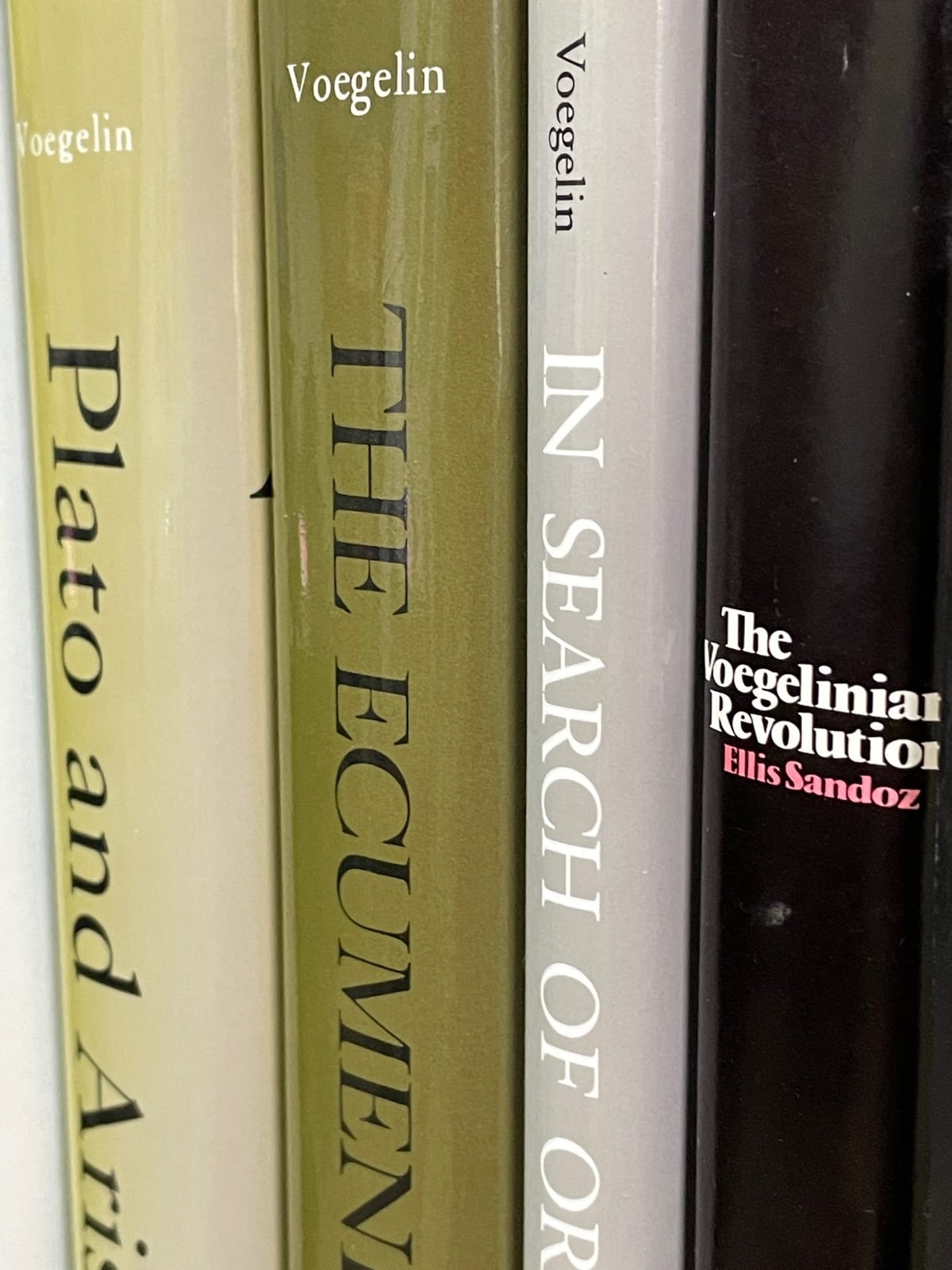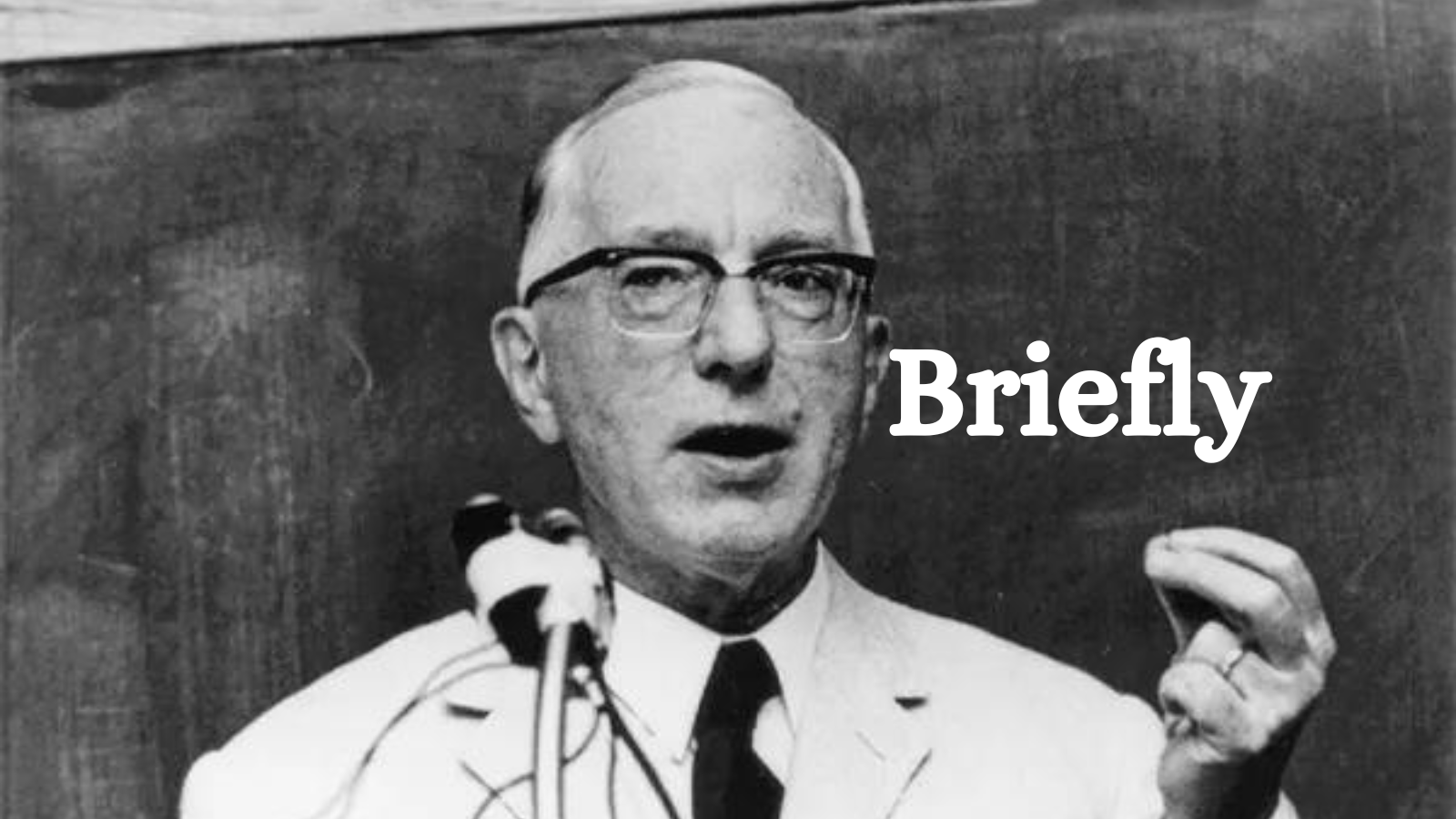In Memoriam: Ellis Sandoz
David Walsh at VoegelinView


Ellis Sandoz was my first American friend. It is almost fifty years since I got off the Greyhound bus that brought me to East Texas State University after the long multi-stage flight that ended in the Dallas-Fort Worth airport. Even though he was absent from campus, Ellis had arranged that I was well looked after on my arrival. This included an invitation from his wife, Alverne, to join the family for a steak dinner to which I was driven by Ellis Jr. I knew I was among people who intended to make me feel right at home. Hospitality was an enduring mark of Ellis and of the beautiful home he and Alverne had built together.
It was the beginning of a friendship that lasted a lifetime, and I am certainly saddened at his departure. We shared a common interest in the work of Eric Voegelin and it was on that basis that I had originally contacted Ellis. His enthusiastic invitation to come to East Texas, complete with the financial support that would make it possible, paved the way for a journey I had contemplated but scarcely begun to plan. Over the years the ability of Ellis to seize and to offer opportunities to others has been one of the most abiding features of his personality. It became clear to me that he relished the role of leadership that in the truest sense meant building something with others. His genial personality was infectious in a way that made collaboration a real pleasure. Work that, with less convivial partners might have seemed a slog, became a source of mutual encouragement and enjoyment. It seemed to me that this was as true of his classes as well as his administrative style. Even in the nursing home where I last saw him it was apparent that he had a team of happy co-conspirators around him. This was surely how he was able to offer his guest a glass of single malt scotch before dinner.
But in Ellis’s case the conviviality he encouraged was never an end in itself. Behind it lay the deeper purpose of enlisting us in a cause he had perceived as central to his mission of saving the world in which we find ourselves. I have no doubt that he perceived something of this in his mentor Eric Voegelin whom he always presented as engaged in a more than scholarly enterprise. Sandoz recognized in Voegelin something of the original purpose of Plato’s Academy. That was to assemble a group of like-minded friends who could support one another in the long-term project of resisting and reversing the decline of a civilization. This was surely evident to anyone who listened to the Eric Voegelin of mid-twentieth century, where the diagnosis of the totalitarian convulsion that threatened to destroy the world was of uppermost concern. Later Voegelin would adopt a more reflective tone, but it was never clear that Ellis ever lost the fervor of a missionary purpose. This was why when he founded the Eric Voegelin Institute, he named it the “The Eric Voegelin Institute for American Renaissance Studies.” He wanted to revitalize America itself. When he started the Eric Voegelin Society (conveniently after Voegelin himself could no longer object) he designed the logo we are still proud to display. What else but St. George slaying the dragon?
It was thus no accident that, when the opportunity presented itself after the fall of the Berlin Wall, Ellis was among the first to organize seminars in Czechoslovakia and Poland. Yet this was never an adventure in political activism, nor an intervention in partisan politics. Ellis’s chosen path was one of an interior conversion that would only come about through a return to the classic sources, as Voegelin himself had sought to do. But this always meant that Ellis too read the great books with a view to the recovery of order in the soul and the city that they alone could effect. Scholarship was in the service of something more than historical accuracy. It headed toward the transformation of the scholars themselves and, from there, the wider community. This anchor of political responsibility was what gave his teaching and writing an almost prophetic quality, to which others were free to respond or not. Ellis knew that this is the limit of the public role a thinker can play.
I would kid him of course that this meant he was a liberal, although of the deepest and most authentic variety. Nothing could displace the free exercise of individual liberty. The theme was there in his very first book, Political Apocalypse: A Study of Dostoevsky’s Legend of the Grand Inquisitor. The work began as his dissertation under Voegelin’s supervision in Munich, but it took on Ellis’s characteristically sharp juxtaposition of the choice modernity confronted, as one between the man-God or the God-man, the Inquisitor or Christ. The spirit of totalitarian ideology, the will to bend the world to human control, could only be met by a return to the spirit of liberty, the acceptance of a God-given order beyond us. It was at this stage that Ellis began to move into a wider orbit outside of the material Voegelin had covered. In many ways this is the realm in which he made some of his most enduring contributions. He was convinced that the American political tradition, for all of the shortcomings that were evident on the contemporary scene, held within it the seeds of a renewal of liberty that had never been fully exploited.
Eventually the fruits would become clear in a volume that consisted of a set of essays but that pointed toward a larger synthetic framework. Its centerpiece is barely hinted at in the title, A Government of Laws (1990). This was preceded by several books on American elections and on case law that in their own ways mined the underlying conception of ordered liberty. Of more moment was his anthology on Magna Carta that carried the exploration back to the medieval sources, The Roots of Liberty: Magna Carta, the Ancient Constitution, and the Anglo-American Tradition of the Rule of Law (1991). But the volumes that I sensed were closest to his heart, and were a seminal contribution to the history of liberty, were the two large anthologies of Political Sermons of the American Founding Era 1730-1805 (1991). Here Ellis had assembled an invaluable collection of texts that demonstrated that the American Founding was neither Lockean nor Enlightenment, but a profoundly religious inspiration. Liberty had its source in a divine gift that made its preservation a more than mundane enterprise. No one could argue with the sheer volume of primary materials assembled here for the first time.
For most scholars this might have been a sufficient accomplishment. But we must recall that Ellis was throughout the preceding decades also operating within the wider canvas Voegelin had already sketched and was intensely conscious of the pioneering character of the work of his mentor. This was a perception that while it was widely shared was perhaps less widely promoted. It is notable that Ellis alone was the one to understand the imperative of bringing out a clearer statement of Voegelin’s significance. Occasional anthologies to which some of us contributed would not accomplish that. Only a major study of Voegelin’s thought as a whole would do so. Apart from the excellent introduction by Eugene Webb, Voegelin as a Philosopher of History, nothing was available. In particular the whole philosophical framework of Voegelin’s work remained to be excavated. This appeared as The Voegelinian Revolution: A Biographical Introduction (1981), in which Ellis put Voegelin into conversation with William James and Edmund Husserl to lay out the philosophy of consciousness that had become the focus of Anamnesis and the later volumes of Order and History. It remains a definitive guide to the thought of Eric Voegelin. This is not least because Ellis had access to the Autobiographical Reflections that he had prompted his subject to record, as well as the material that would be included in the archive.
